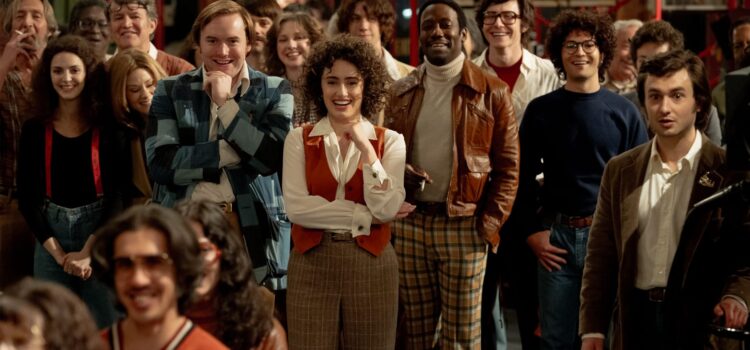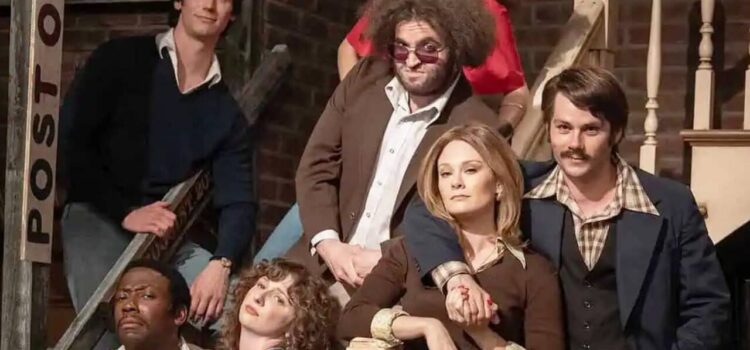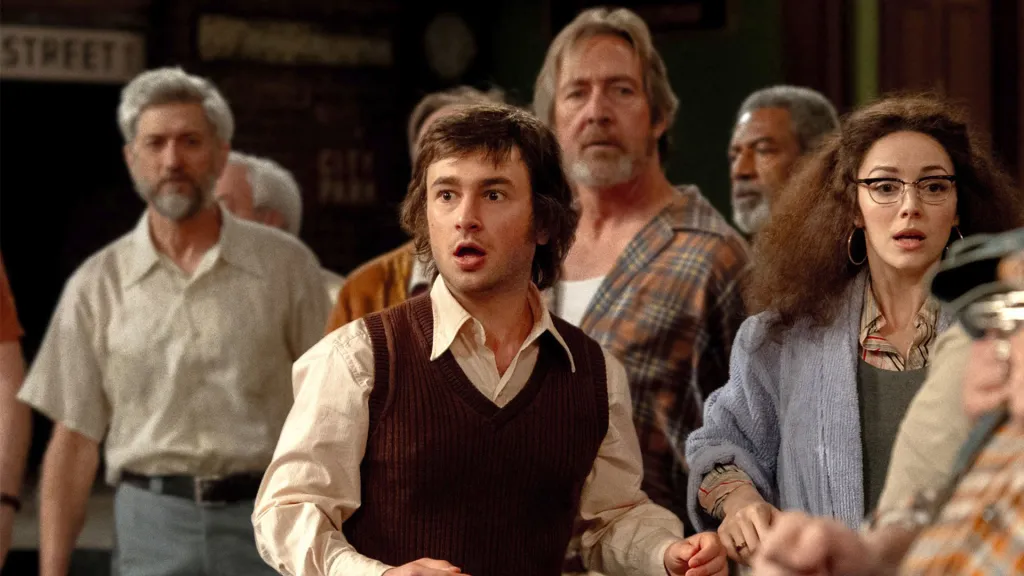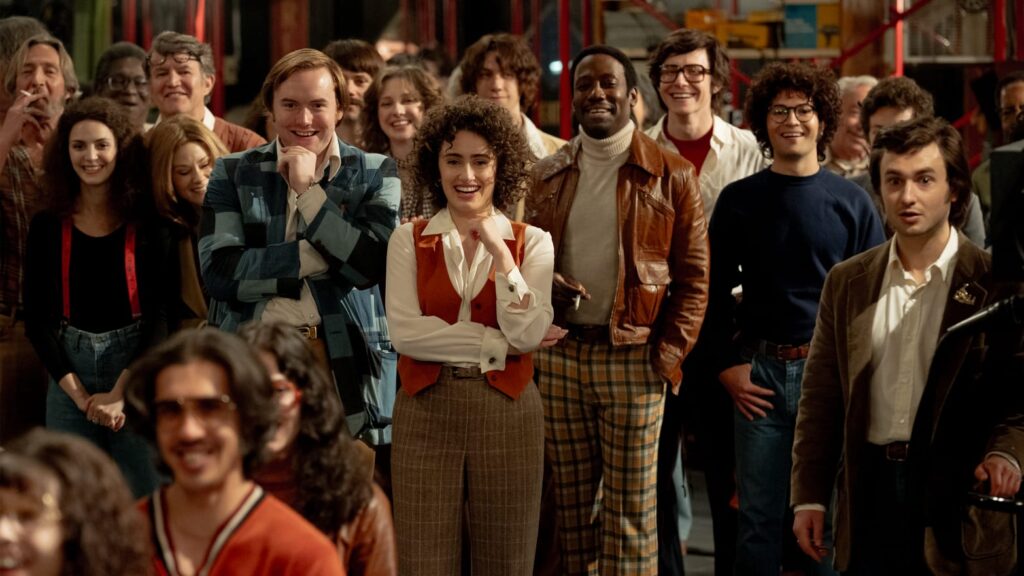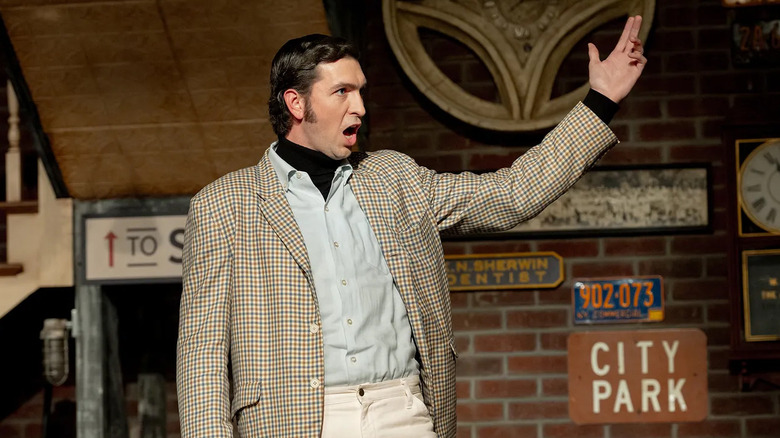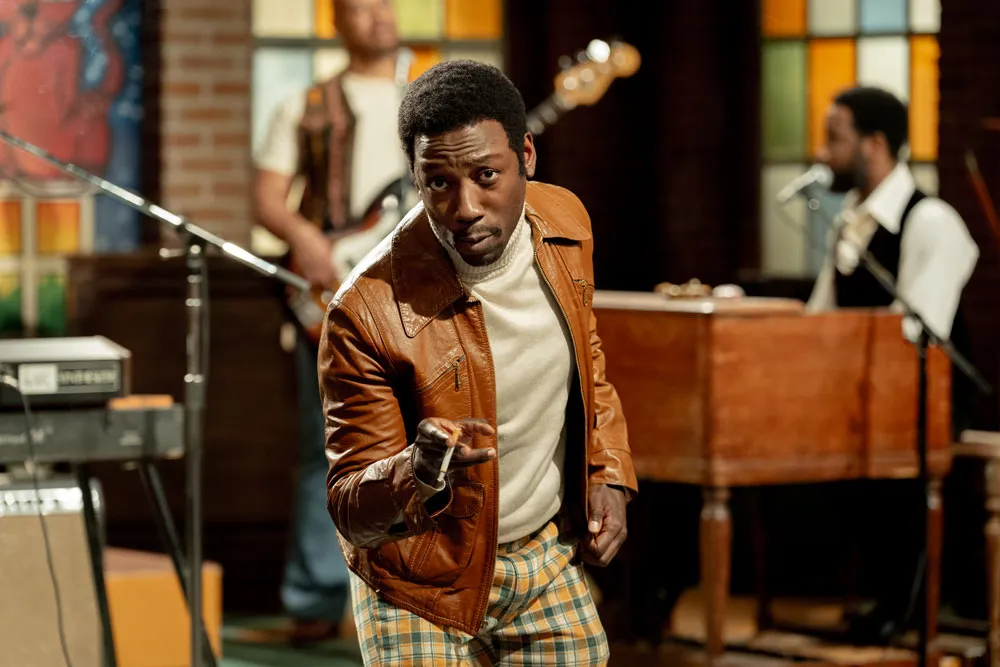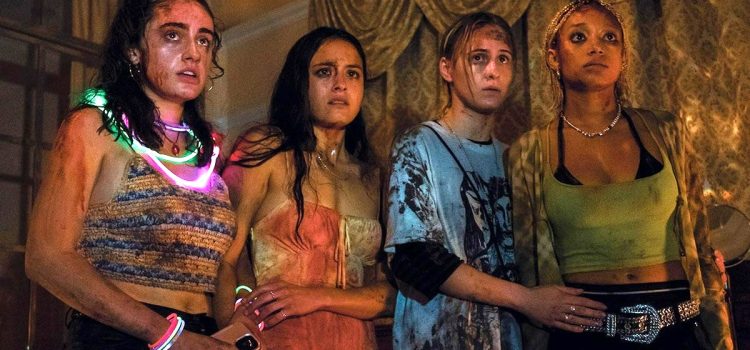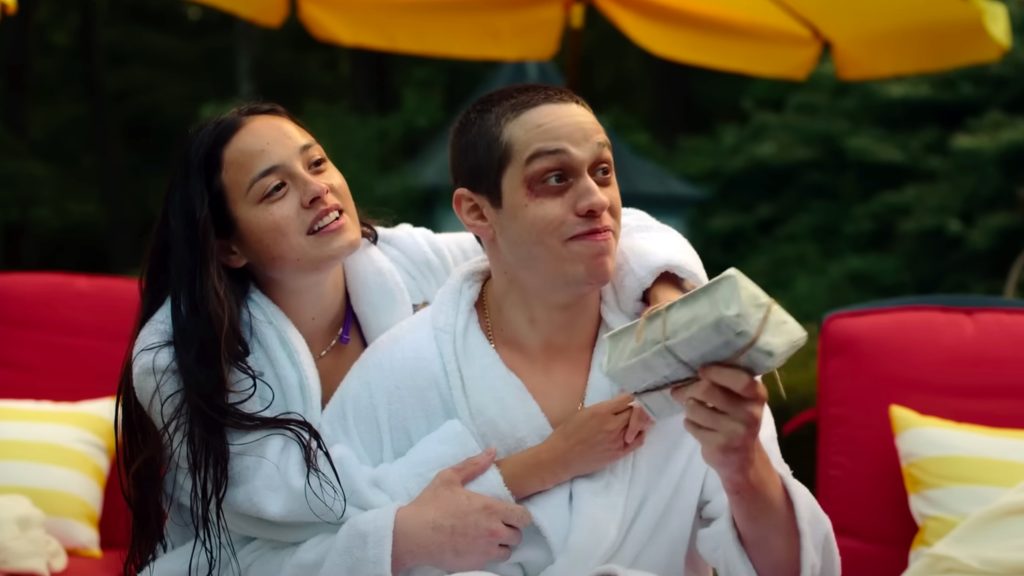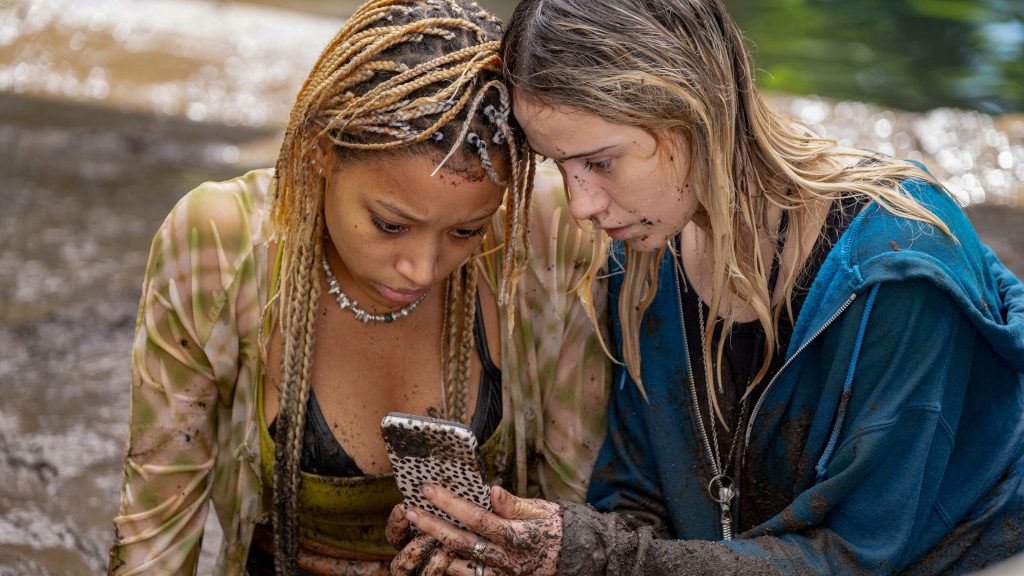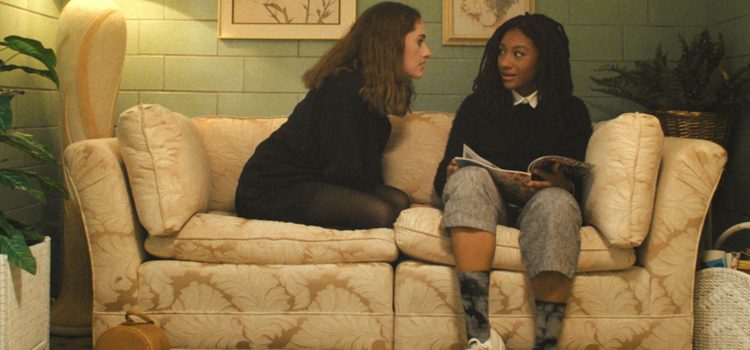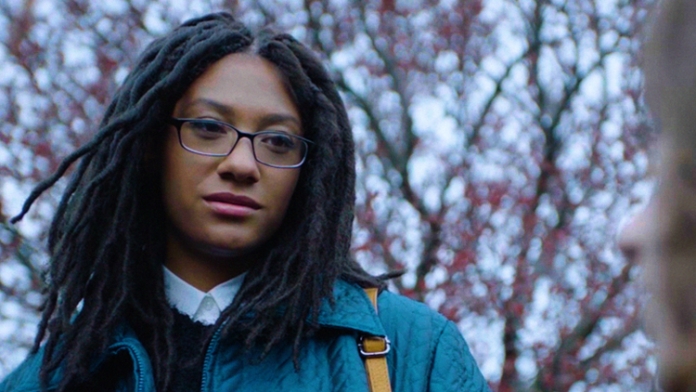By Alex McPherson
Frenetic, scattershot, and thoroughly self-absorbed, director Jason Reitman’s “Saturday Night” might satisfy those nostalgic for the early days of “SNL,” but fails to make a name for itself on its own merits.
Presenting itself as a fictionalized version of the stressful 90 minutes leading up to the original “Saturday Night Live” (originally called “Saturday Night”) broadcast in October 1975 at Studio 8H, Reitman’s film revolves around Lorne Michaels (Gabriel LaBelle), the show’s executive producer and ringleader. Michaels remains insistent on the show’s potential while having little idea as to what it actually is.
Co-creator Dick Ebersol (Cooper Hoffman) is increasingly worried about how things will pan out, trying to reason with the ever-resistant Michaels as the cramped, claustrophobic halls of Studio 8H buzz with both excitement and growing fears of potentially spectacular failure. There’s also a llama, for some reason.
All the while, a group of unruly, up-and-coming comedians — including the arrogant yet charismatic Chevy Chase (Cory Michael Smith), Dan Aykroyd (Dylan O’Brien), Garrett Morris (Lamorne Morris, no relation), John Belushi (Matt Wood), plus several talented women such as Gilda Radner (Ella Hunt), Laraine Newman (Emily Fairn), and Jane Curtin (Kim Matula) that the film mostly treats as afterthoughts — prepare to go on-air, confronting their own mini-crises and doubts as the clock ticks, ticks, ticks toward showtime, and the history books.
Tempers run hot (the pretentious Belushi and Chase butt heads, and Belushi hasn’t even signed his contract yet), people are stoned out of their minds, lights are falling on-stage, the sound system’s busted, head writer Michael O’Donoghue (Tommy Dewey) is spewing acerbic barbs at anyone and everyone questioning his scripts, and rival late-night host Milton Berle (J.K. Simmons, typically strong) is, quite literally, waving his dong around.
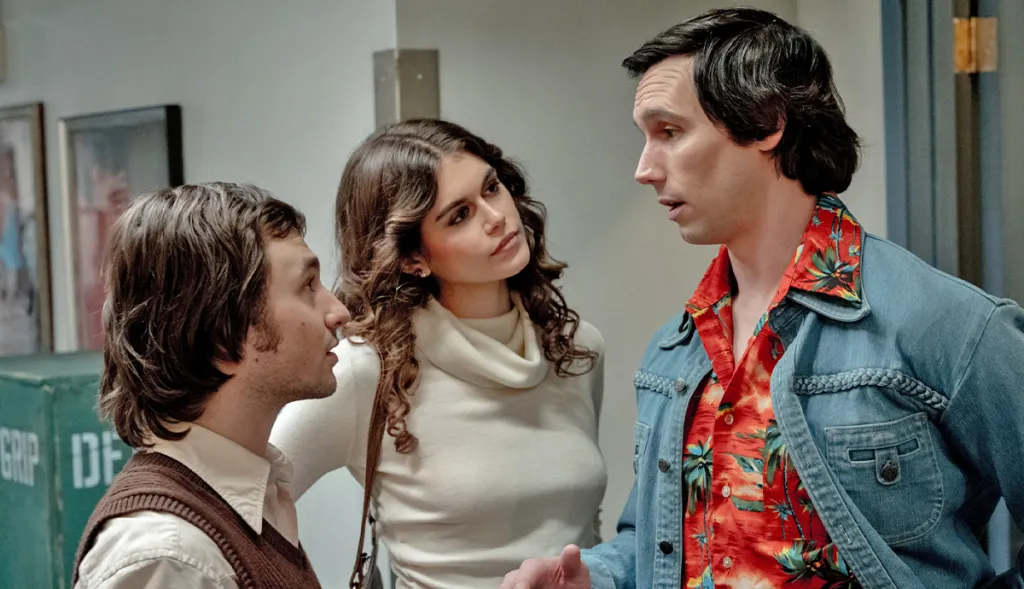
NBC executive Dave Tebet (Willem Dafoe) is observing the whole production from afar, egging on Lorne with smug anticipation of his passion project’s downfall, as the whole endeavor is a pawn in NBC’s contract dispute with Johnny Carson.
Suffice to say, the stakes are high, at least in the context of these characters, who don’t yet know that SNL will wildly succeed and become a cultural institution. Watching as a casual fan of the iconic program, though, “Saturday Night” is curiously devoid of surprise, or insight, or, even, laughs. There’s way too much smugness in Reitman’s retelling of this “revolution in comedy.” The film appeals to mainstream cinema’s obsession with callbacks at the expense of telling a story worth investing in.
Still, despite its emptiness, “Saturday Night” features dynamic performances from an ensemble doing an at-times-scarily convincing job at portraying their real-life counterparts. LaBelle brings a nervous, stubborn energy that’s simultaneously inspiring and pathetic, barely tamping down Michaels’ anxiety over his passion project’s success (or downfall, but we already know it’s going to be a success).
Hoffman is typically excellent as Ebersol, channeling his father’s capacity for emotional release during a pivotal scene in the latter half of the film.
Cory Michael Smith is an obvious standout as Chase, conveying the man’s arrogance and insecurity (and hilarity) in a way that demands attention, whether we like it or not. O’Brien makes a mark with his brief screen time as Aykroyd. Morris brings some much-needed pathos as his character questions his purpose and reason for being there as the only Black cast member. Wood does what he can with Belushi, with Reitman and co writer Gil Kenan highlighting his drug use and fickleness (mostly as a punchline) — making Belushi’s will-he-won’t-he arc both semi-poignant and weirdly uncomfortable, given Belushi’s later tragedy.
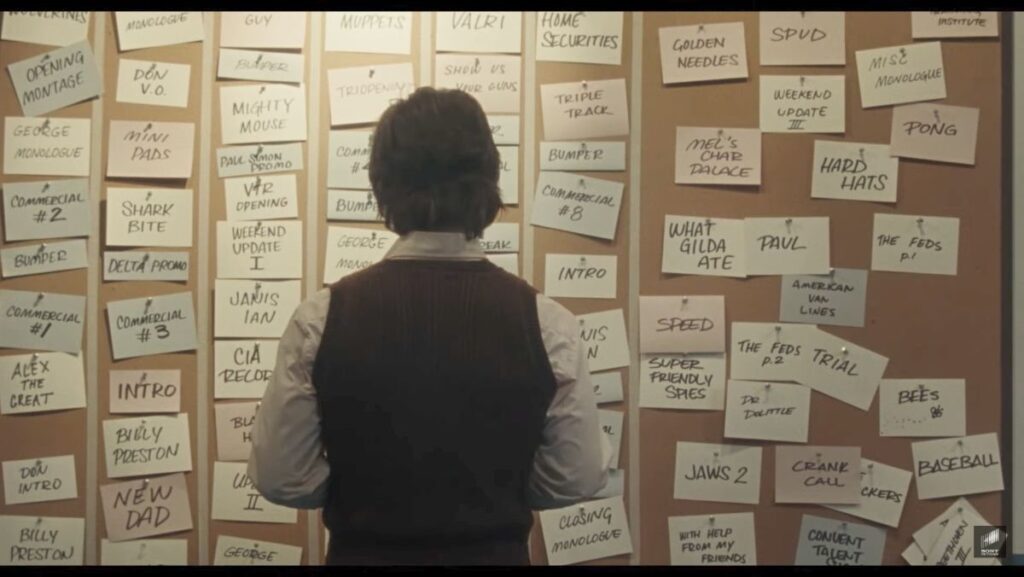
The rest of the cast — including the ever-reliable Rachel Sennott as Michaels’ then-wife, Rosie Shuster, Jon Batiste in a small-yet-memorable appearance as Billy Preston, and seemingly a million other recognizable faces playing various recognizable faces, with Nicholas Braun doing double duty as punchline-ready interpretations of Andy Kaufman and Jim Henson — are perfectly adequate, but not exactly given much to sink their teeth into narratively with their limited screen time.
Indeed, “Saturday Night” ultimately reveals itself to be little more than a carnival ride of memories and irritating dialogue that — when it’s not replicating famous jokes and sketches — takes advantage of 20/20 hindsight to constantly pat itself on the back.
Reitman and co-writer Gil Kenan’s script takes an Aaron-Sorkin-esque approach in its witticisms, fast pace, and at-times blatant sentimentality as it literally clicks down the moments until showtime, incorporating as many famous gags as possible that loyal viewers are expected to get excited about. Some barbs and vignettes amid the chaos are amusing, and “Saturday Night” is never less than watchable, if usually superficial.
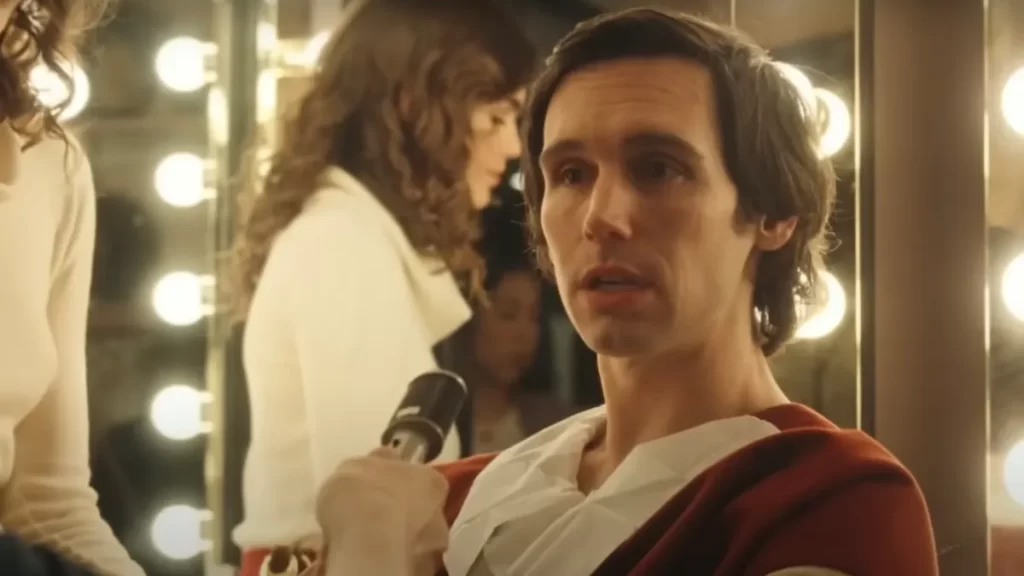
Eric Steelberg’s textured, 16mm cinematography weaves throughout the studio’s sweaty interiors, faithfully recreated with attention to period detail in sets and costuming, making plentiful use of long takes and whip-pans.
The film careens from one easter egg to another — complete with its own pseudo laugh track of characters cracking up; the film desperately begs us to laugh along with them. Batiste’s percussion-laden score, combined with Nathan Orloff and Shane Reid’s editing, helps create a fittingly frantic, albeit artificial, sense of paranoia that highlights the film’s construction as an allegedly off-the-rails roller coaster that’s never truly allowed to chart its own path.
It’s fine: There’s just not much there beyond the film playing to viewers’ nostalgia. And maybe that’s acceptable for those who’d like to coast on the associated dopamine rush. Myself, however, not so much. “Saturday Night” is never bad (far from it), but it never ascends beyond average — a self-congratulatory tribute to the groundbreaking show in a puzzlingly vanilla framework.
“Saturday Night” is a 2024 comedy based on a true story, directed by Jason Reitman, and starring Gabriel LaBelle, Cooper Hoffman, Willem Dafoe, Corey Michael Smith, Lamorne Morris, Rachel Sennott, Matt Wood, Dylan O’Brien, Ella Hunt, Kim Matula, Emily Fairn, Nicholas Braun, Jon Batiste, Tommy Dewey and JK Simmons. It is rated R for language throughout, sexual references, some drug use and brief graphic nudity and the run time is 1 hour, 49 minutes. It opened in theaters Oct. 11. Alex’s Grade: C
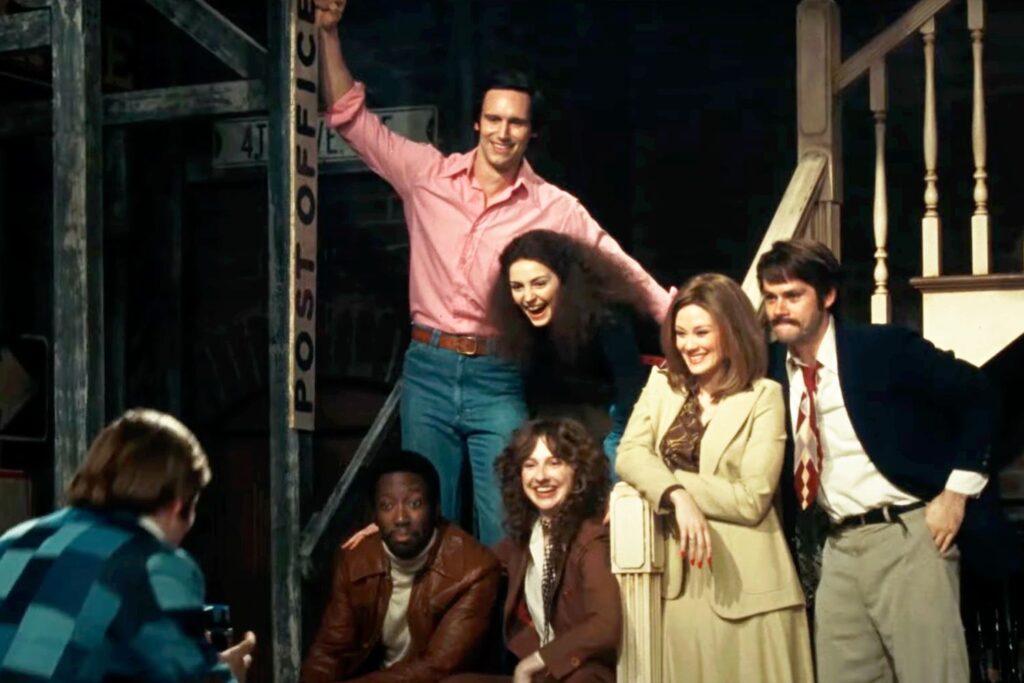
Alex McPherson is an unabashed pop culture nerd and a member of the St. Louis Film Critics Association.

